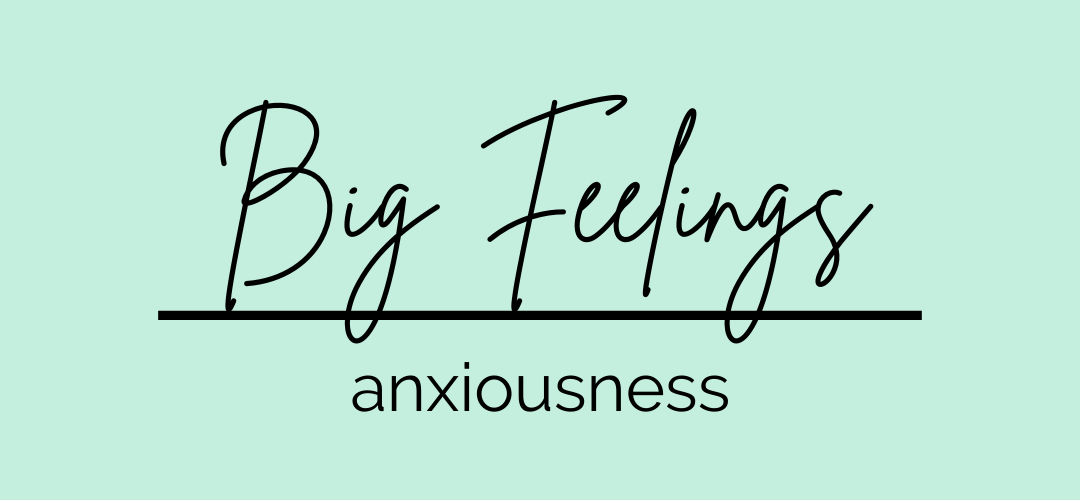I follow a woman on Instagram who manages to care for her two small children, run a business, exercise every day, and post about all of it by herself—or so I thought. She had her second child around the same time I had Charlee. As a new mom, I would see her pictures in my Instagram feed and wonder how she had so much time and energy to do it all when I was barely managing my laundry and hygiene.
Then one day she passively mentioned her assistant in one of her Instagram posts. I laughed at myself and thought, “Ohhh, that’s how she does it all—she doesn’t!”
In the first months of motherhood, I was anxious a lot, and I began to ask myself why. Then one Sunday morning—I think it was our first Sunday back at church with Charlee—I was rushing around the house so we could get there on time. I couldn’t wait to attend church again, but I didn’t account for the extra time it takes to get ready with a two-month-old baby in tow.
Everything that could go sideways did. I couldn’t find my shoes. Charlee started crying because we were interrupting her nap schedule. I didn’t even know what I needed at church as a new momma, and I think we stuffed everything but the kitchen sink into her diaper bag. When we finally had Charlee snapped in her carseat, she wet her diaper so we had to start the process of getting out the door all over again. Postpartum hormones and frustrated plans created the perfect storm for a momma meltdown.
When we finally made it to church, I glanced down at the first page of the bulletin while the sermon began. A quote by G.K. Chesterton was printed on the front:
God is that which can make something out of nothing. Man (it may truly be said) is that which can make something of anything. In other words, while the joy of God be unlimited creation, the special joy of man is limited creation, the combination of creation with limits. Man’s pleasure, therefore, is to possess conditions, but also to be partly possessed by them; to be half controlled by the flute he plays or by the field he digs. The excitement is to get the upmost out of given conditions; the conditions will stretch, but not indefinitely… because [man] is not God, but only a graven image of God, his self-expression must deal with limits; properly with limits that are strict and even small.
G.K. Chesterton in What’s Wrong with the World
The cause of my anxiousness was in black-and-white on the page: I was fighting my God-given limits as a mortal mother. In doing so, I was trying to play God in a way.
Not Made to Do “All The Things”
In the passage above, Chesterton wrote, “God is that which can make something out of nothing… the joy of God [is] unlimited creation.” Since God alone is limitless, he is the only being able to make something from nothing. The writers of the Bible testify to how he set the limits of his creation. The author of Psalm 104 praised God for his sovereignty over the boundaries of the universe:
[God] set the earth on its foundations,
Psalm 104:5-9, English Standard Version
so that it should never be moved.
You covered [the earth] with the deep as with a garment;
the waters stood above the mountains.
At your rebuke they fled;
at the sound of your thunder they took to flight.
The mountains rose, the valleys sank down
to the place that you appointed for them.
You set a boundary that they may not pass,
so that they might not again cover the earth.
Unlike God, you and I are limited. Chesterton wrote about humanity, “[T]he special joy of man is limited creation, the combination of creation with limits. Man’s pleasure, therefore, is to possess conditions, but also to be partly possessed by them.” Maybe it’s obvious that you’re limited or have conditions, but what does it mean to be “possessed by them?” This means we aren’t self-sufficient. Just like we can’t limitlessly create, we also can’t sustain ourselves. We rely on God and his creation to sustain us, and the psalmist wrote about this later in Psalm 104:
From your lofty abode you water the mountains;
Psalm 104:13-15, 27-29, ESV
the earth is satisfied with the fruit of your work.
You cause the grass to grow for the livestock and plants for man to cultivate,
that he may bring forth food from the earth
and wine to gladden the heart of man,
oil to make his face shine
and bread to strengthen man’s heart…
[All creation] looks to you,
to give them their food in due season.
When you give it to them, they gather it up;
when you open your hand they are filled with good things.
When you hide your face, they are dismayed;
when you take away their breath, they die
and return to dust.
Do you see how the psalmist recognized creation’s limits and reliance on God for sustainment since he is the only self-sustaining One? In her book None Like Him, Jen Wilkin wrote,
“Our God is self-sufficient, needed by all, needful of nothing… We were created to need both God and others. We deny this to our peril. We are not needy because of sin; we are needy by divine design. Certainly, we can need in sinful ways, and we habitually confuse needs with wants, but we were not created to be self-sufficient. Nor were we re-created in Christ to be so. Sanctification is the process of learning increasing dependence, not autonomy.
Jen Wilkin in None Like Him, pp. 59, 62-63
In the early days and weeks of motherhood, I was anxious because I was constantly fighting my own God-given limits. Not only was I trying to do too many things, but I was trying to do them in my own sufficiency. Being anxious and frustrated by my limits as a new mom instead of finding “the special joy” in them (as Chesterton wrote) left me depleted physically, emotionally, and mentally. This sentence by Wilkin is especially humbling: “We are not needy because of sin; we are needy by divine design.” I thought something was wrong with me because I couldn’t juggle “all the things” as a new mom, but my anxiousness was a signpost pointing me to the truth that I was never designed to keep all the balls in the air.
Some balls needed to drop.
A New Rhythm
People are anxious about different things. This blog post isn’t meant to uncover the single root cause of anxiousness—I’m just being honest with you about the root cause mine. You might be anxious for different reasons, and it’s important to ask God to help you identify them. Over my lifetime, seasons when I’ve been most anxious were the ones when I tried to do too much and fought against my divine design of limits with all my might.
When I was in seminary, I was very anxious one week when I happened to read Matthew 11:28-30 in my personal Bible study: “Come to me, all of you who are weary and burdened, and I will give you rest. Take up my yoke and learn from me, because I am lowly and humble in heart, and you will find rest for your souls. For my yoke is easy and my burden is light” (Christian Standard Bible).
Christ’s command to “take up his yoke” really caught my attention this time. It was interesting to me that Christ commands us to come to him for rest and take up his yoke. The original hearers of his words would’ve immediately known Jesus was referring to the wooden crossbeam fastened over the necks of two animals and attached to a farmer’s plow.
A yoke was an instrument not of rest but work.
So it struck me that Jesus equated an instrument of work with rest under his lordship. How is that even possible? Why didn’t Jesus just tell us to remove the yoke altogether?
We often vacillate between burnout and lethargy. We take on more than we’re able, which leads to burnout. Then we’re so defeated by our limits and burnout that we revert to the opposite extremes of lethargy or idleness.
But God gives His children work to do, and he gives us roles to fulfill. Remember Psalm 104 said, “You cause the grass to grow for the livestock and plants for man to cultivate, that he may bring forth food from the earth.” The creation account in Genesis 1 involves God giving humanity dominion over his creation to steward for good.
When we are anxious because we’re fighting our limits, the problem isn’t solved by removing our yokes and doing nothing. We still have God-given responsibilities and relationships that God invites us to steward well.
The answer lies not in ceasing to work but in working a different way.
This is why Jesus said we find rest for our souls only when we take up his yoke and learn from him. I like how Eugene Peterson translated Matthew 11:29 in The Message: “Walk with me and work with me—watch how I do it. Learn the unforced rhythms of grace.”
We have to learn new rhythms—Christ’s “rhythms of grace”—when our to-do list has us feeling overwhelmed or burned out. Chesterton said, “…because [man] is not God, but only a graven image of God, his self-expression must deal with limits; properly with limits that are strict and even small.” As I get older, I’m learning part of what it means to put on Christ’s yoke is to take off some of the responsibilities he never asked of me in the first place. It means finding contentment in limits that are “strict and even small.”
As season change, our limits change too. There are times when limits don’t have to be as strict or small. For those of you feeling anxious because you’re taking on too much, I hope this is an encouragement to take inventory: is it time to surrender to the limits God has given you instead of fighting them?
Is it time not to cease working but to work a new way?
Next week, I’ll be writing here about anger so come back!
…
This is Part 2 of a blog series on emotions. Click the links below to read the rest of the series:
Part 1: Big Feelings: A New Series on Emotions
Part 2: Big Feelings: Grief
Part 3: Big Feelings: Anxiousness


 Welcome to my blog! In a nutshell, I want you to know that I am passionate about building bridges between people both inside and outside of the Church. I live in New Orleans, LA, with my husband where I am a seminary student. Learn more
Welcome to my blog! In a nutshell, I want you to know that I am passionate about building bridges between people both inside and outside of the Church. I live in New Orleans, LA, with my husband where I am a seminary student. Learn more 